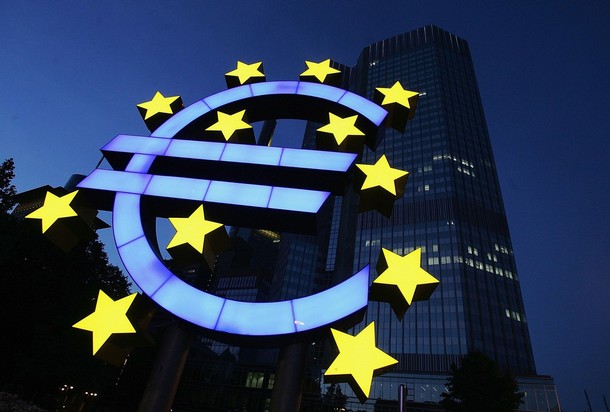ROUNDUP: Europe cuts rates to historic low as recession deepens
 Frankfurt - The European Central Bank (ECB) cut rates for the fifth time in six months Thursday, lowering borrowing costs to an historic low and signalling further reductions in the coming months after it slashed its growth and inflation forecasts.
Frankfurt - The European Central Bank (ECB) cut rates for the fifth time in six months Thursday, lowering borrowing costs to an historic low and signalling further reductions in the coming months after it slashed its growth and inflation forecasts.
Thursday's hefty 50-basis-point reduction brought the ECB's benchmark refinancing rate down to 1.5 per cent and followed an announcement in London that the Bank of England (BoE) monetary policy committee had also trimmed the cost of money by 50 basis points.
"We did not decide ex ante that we were at the lowest level," ECB chief Jean-Claude Trichet told a press conference following Thursday's meeting of the ECB's
22-member rate-setting council.
He declined, however, to say where the floor rate might be, but again stressed that the ECB saw "a number of drawbacks" with a zero interest rate level.
With inflationary pressures diminishing and a severe economic downturn having set in, Trichet warned that inflation in the 16- member eurozone could slip to "negative levels" in the coming months with the recession playing havoc with public finances across the currency bloc.
He said the ECB was constantly monitoring the threat posed by deflation but insisted that "the risks are very meagre" in the eurozone.
Trichet did, however, indicate that there had been a softening in the bank's stance on reverting to other non-interest rate instruments to help spur economic growth.
Trichet said the ECB was considering a series of "non-standard measures" to help pump fresh capital into the economy to underpin both economic growth and credit markets.
But he also declined to be drawn on the details of what the ECB was considering. Although economists say the non-standard measures could include measures such as buying up corporate bonds.
"We do not exclude anything," said Trichet with both the US Federal Reserve and the Bank of England announcing a series of measures to shore up economic growth through what is essentially the modern equivalent of printing money.
The ECB chief went on to say that there were differences between the ECB's operations and its "sister institutes across the channel and the Atlantic.
At the same time, Trichet set out a new set of so-called ECB staff economic projections, which underscored the deepening economic slump in the eurozone with growth shrinking dramatically as inflationary pressures dwindle rapidly.
Many analysts believe that the ECB will lop another 50 basis points off rates in the eurozone by the middle of the year, bringing the refinancing rate down to just 1 per cent.
"It is highly unlikely that growth and inflation developments would surprise so much on the upside that a policy rate of 1.0 per cent would turn out to be too low, any time soon," said ING economist Carsten Brzeski.
The eurozone economy is now likely to contract between 3.2 per cent and 2.2 per cent this year or by 2.7 per cent and to possibly stagnate next year between minus 0.7 and 0.7 per cent but with growth gradually gaining ground as 2010 unfolds, the staff projections said.
In December, the ECB staff projections set out a contraction in growth this year of 0.5 per cent.
Despite February's unexpected tick up in the eurozone's annual inflation rate to 1.2 per cent, consumer prices remain well below the ECB's 2-per-cent inflation target this year and in 2010.
As a result, Thursday's staff projections show annual eurozone inflation falling to between just 0.1 per cent and 0.7 per cent in 2009 before edging up to between 0.6 per cent and 1.4 per cent in 2010.
Meanwhile, dwindling inflation and a steady stream of bleak economic news had helped to lay the foundations for Thursday's rate cut with the ECB having now slashed rates by a total of 275 basis points since October.
At the same time, another round of grim earning results from leading banks and financial houses have sparked renewed concerns about the state of the global financial sector, in the wake of the global downturn triggered by a crisis in the US banking business.
Economic confidence in the eurozone plunged to an historic low last month, according to the European Commission's closely watched economic sentiment indicator released last week, while unemployment climbed to a 28-month high of 8.2 per cent in January. (dpa)